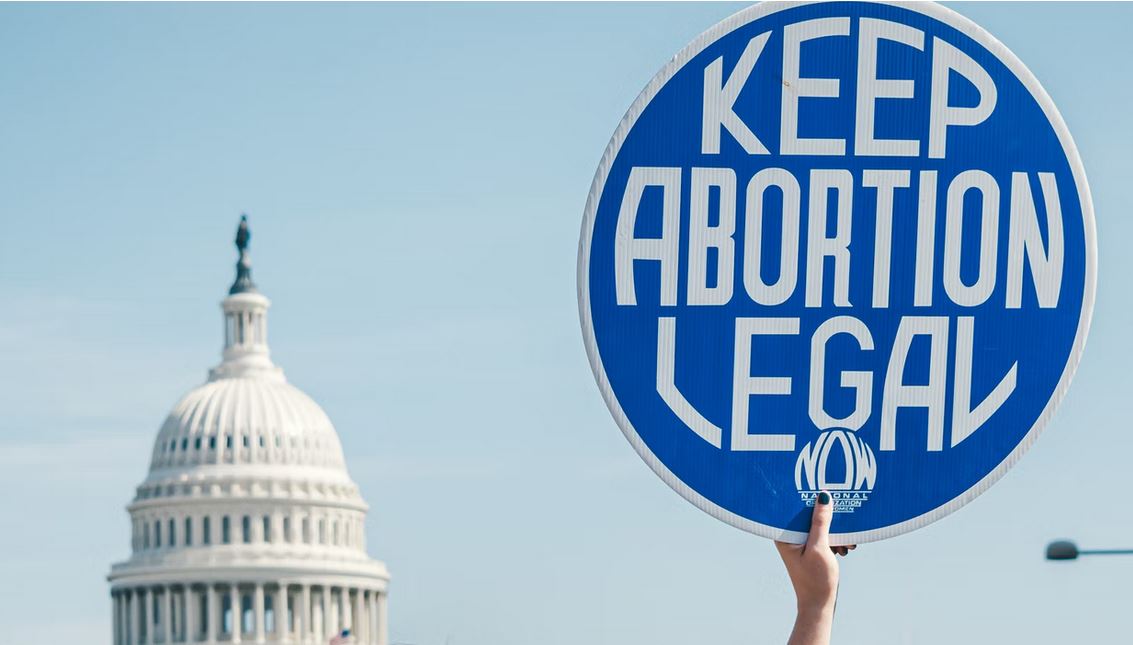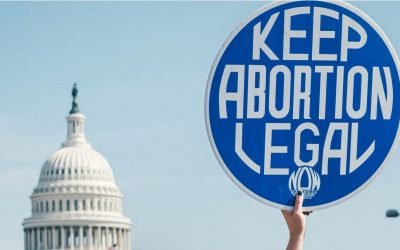Abortion should be legal, and all efforts to ban or limit it constitute a flagrant denial of individual rights.
To fully understand why the abortion issue is so important, let us revisit the Enlightenment (circa 1685-1815). The Enlightenment was a turning point in Western Civilization and was aptly called the Age of Reason. It was a revolt against centuries of faith-based, religious totalitarianism that demanded subservience to clerical authority. The Enlightenment championed reason, individual rights, science, and freedom from religiously supported coercion.
John Locke (who wrote his Second Treatise on Government in 1690) was the foremost champion of individual rights and was the philosopher whose ideas reflected the Age of Reason and formed the foundation for the American Revolution. (Note: Locke did believe in God but that was not the base of his political theory).
The Supreme Court majority is now trying to reverse the Enlightenment and drag America back to the Dark Ages. Many religionists have resented the fact that America is officially a secular country and thus does not favor any religion or any religious tradition. They have wanted the government to favor their religion.
The opening wedge is the assault on the right to abortion. The Declaration of Independence, which describes the philosophy on which our country is based, says that all individuals are created equal and have inalienable rights, which include life, liberty, and the pursuit of happiness. The Bill of Rights includes the first ten amendments to the Constitution guaranteeing certain freedoms and limiting governmental powers.
It is true that the Constitution does not list abortion as a right, but the Constitution makes it clear that the rights listed in the Bill of Rights are not exhaustive (Amendment 9). The Constitution, for example, does not list the following as rights: going to the grocery store, getting married, making love to your partner, going to concerts, buying a house or furniture, eating out, saving money and investing, hiking, watching TV, using a computer, and millions of other actions that are recognized as rights.
Trying to make an exhaustive list of individual rights would require hundreds of thousands of pages and would be ridiculous.
It bears noting that although the 1973 Roe v. Wade ruling correctly asserted that abortion was a right, the ruling was nonetheless doubly botched. Justices based the ruling on a right to privacy and alleged that non-enumerated rights are based on tradition. Privacy is not the basic issue. Beyond that, many of our traditions—which were later abandoned—have been wrong, e.g., preventing Black people and women from voting, outlawing interracial marriage, forcing store closures on Sunday, making homosexuality of all types a crime, outlawing gay marriage, making certain sex acts between consenting partners a crime, outlawing nude beaches, and so on. In sum, the correctly asserted right in Roe v. Wade was supported by incorrect premises, which put the ruling in jeopardy from the start. (A full discussion of the proper powers the government is beyond the scope of this book, I refer the reader to Ayn Rand’s essays Man’s Rights & The Nature of Government).
The Roe decision was faulty in another respect. It supported the idea that the “state has an interest” in the issue of abortion. But what does this mean? What gives the state an interest in what a prospective mother does with her body? Is this because the state might want more babies? Why is that any of the state’s business, unless the justices were asserting that pregnant women must live for the state? This implies that women do not have individual rights, which would mean that we are not really a free country. This is an immense betrayal of America.
Given reason and rights, what should the legality of abortion, and all court rulings about it, be based on? One thing: does a woman have the moral right to her own, individual body, including all of its parts? By what right do selected parts belong to someone else? The religionists say, in effect, that a fetus belongs to God (an invisible entity), the state, and/or society, and that it cannot be terminated by the mother. Based on what principle?
They may argue that the life of the fetus is intrinsically good. But what does this mean? Good for whom? Not for the mother, who does not want a child or to endure pregnancy. She is stuck with the fetus, by law, whether she wants it or not, under penalty of criminal prosecution.
By what right? A fetus does not become a separate entity until it is born and cannot have rights before that. To turn the court’s own argument against them, where in the Constitution does it say that a fetus has rights? Rights cannot apply to a potentiality or a body part. Viability is not relevant to the issue. A potentiality is not an actuality. After all, a singular sperm or egg is a potentiality.
The idea that a pregnant woman is in a potential moral conflict with a part of her own body, that is, with herself, is too grotesque a contradiction—or nightmare—to be taken seriously. If this represents love for humanity, I would like to know what hatred is.
Let us be clear that limiting abortion is not necessarily the end of the assault on rights. Justice Thomas evidently wants to abolish gay marriage, contraception, and who knows what else? The anti-abortion movement looks like a harbinger of a larger-scale attack on the Enlightenment, pro rights philosophy— which implies a return to religious dogmatism. (Recently Congress has taken some steps to protect contraception, an issue that should never have had to come up for a vote at all.)
It should be noted that the three core Conservatives on the court claimed, during the hearings, that they would honor court precedent. They obviously lied in order to get appointed; they clearly intended to abolish Roe v. Wade all along.




